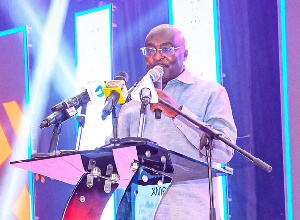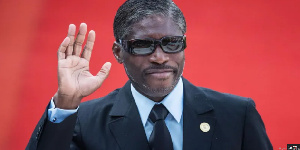- Home - News
- Polls
- Year In Review
- News Archive
- Crime & Punishment
- Politics
- Regional
- Editorial
- Health
- Ghanaians Abroad
- Tabloid
- Africa
- Religion
- Election 2020
- Coronavirus
- Photo Archives
- News Headlines
- Press Release
General News of Sunday, 13 November 2016
Source: GNA
Give preferential treatment to PWDs during polls - EC
The Electoral Commission (EC) has directed all Returning Officers and Presiding Officers to offer People With Disability (PWDs) other vulnerable people preferential treatment at the Polling Stations.
In the handy book: 'A Guide to Voters: Election 2016, Presidential and Parliamentary Elections,' made available to the Ghana News Agency in Accra, the EC directs Presiding Officers to make the necessary arrangements to ensure that the sick, aged, pregnant women, lactating mothers and PWDs are not asked to join queues.
'Voters with unidentifiable disabilities such as the deaf may be in the company of others who are likely to prompt the Presiding Officer for preferential treatment.
'Presiding Officers are to make sure that all polling stations are located at places accessible to all voters. Polling Stations must not be located on verandas, across gutters or at any area that would be difficult for vulnerable people especially wheel chair users to access.
'All Polling Stations must be located at low level areas. Existing centres that are on verandas, across gutters or anywhere that will prevent free movement of voters must be relocated to a much accessible area,' the book said.
The EC guide lines also provides that persons with visual impairment (full impairment or partially sighted), the physically disabled (those using wheel chairs or callipers), persons with hearing impairment, persons living with albinism and any other categories of disabilities that may be noticed at the centre.
The Commission said Tactile Ballot Jackets have been produced to help blind and partially sighted persons to vote independently.
Two tactile jackets would be provided per Polling Station: one for the Presidential and the other for the Parliamentary election for all the constituencies.
The publication of the EC Guide to the Voter is captured under the 'GNA Tracks Election 2016 Project', being funded by GOIL, the foremost indigenous oil marketing company and CIMG 2015 Petroleum Company of the year.
The project seeks to sensitise the electorate on the various issues raised by political parties, the elections management body and other governance institutions.
It aims at ensuring gender and social inclusion in national politics and to provide voice for the youth, vulnerable groups, opinion leaders and the broader spectrum of the society, and to contribute to the achievement of peaceful polls.
Another objective of the project is to create a platform to dissect the manifestoes of all political parties and provide in-depth analysis of each thematic area to the electorate to enable them to make an informed judgment.
Entertainment

Bawumia’s $80 bn market value claim for Spotify, false!
Opinions







